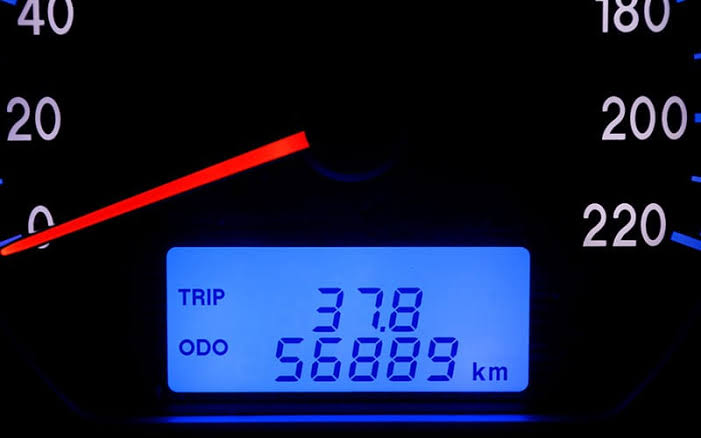10 Reasons Not To Lease A Car
Are you considering leasing a car for your next vehicle purchase? While leasing may seem like an attractive option, it is important to consider all of the potential drawbacks before making a decision.
Leasing a car can come with several disadvantages that may not be immediately apparent. These drawbacks can significantly impact your finances and overall driving experience.
In this section, we will explore top 10 reasons not to lease a car. Understanding these potential disadvantages can help you make informed decisions that best suits your needs and budget.
Key Takeaways:
- Leasing a car does not provide ownership or equity in the vehicle
- Mileage restrictions can be inconvenient for those who frequently travel long distances
- Terminating a lease early or excessive wear and tear can result in costly penalties
- Customization options may be limited when leasing a car
- Leasing a car may result in higher insurance costs compared to purchasing a vehicle

Reasons Not To Lease a Car
Leasing a car may seem like an attractive option at first, but it’s important to understand the potential drawbacks before making a decision.
Here are some of the most significant reasons not to lease a car:
Lack of Ownership
One of the biggest disadvantages of car leasing is the lack of ownership. You are essentially renting a vehicle for a set period, usually 2-3 years when you lease.
You do not own or have any equity in the car during this time. Unlike purchasing a car, you will not have an asset that can be sold or traded in for value in the future.
Mileage Restrictions
Leasing a vehicle often comes with strict mileage restrictions, which can be one of the main reasons to not lease a car. These limits can vary depending on the terms of your lease agreement and can range from 10,000 to 15,000 miles per year.
If you exceed these limits, you may be charged additional fees for each mile driven over the limit. This can significantly increase your costs. This mileage restriction can be inconvenient for those who frequently travel long distances or have a long commute to work.
How to Avoid Mileage Restrictions
- Negotiate higher mileage limits with the leasing company before signing the lease agreement.
- Consider purchasing additional miles upfront to reduce the cost per mile if you think you will be driving more than the limit.
- Use public transportation or carpooling for your daily commute to reduce the number of miles you put on your leased vehicle.
- The typical lease term is two to three years, which means you may need to plan your mileage carefully to avoid any penalties at the end of your lease.
You can make an informed decision about whether leasing a car is the right choice for you by keeping this limitation in mind.

Costly Penalties
One of the biggest reasons to not lease a car is the potential for costly penalties. These penalties can accrue when you terminate the lease early, or if the vehicle sustains excessive wear and tear.
Early Termination Fees
When you lease a car, you are signing a contract that outlines the terms of the lease agreement. You will likely be responsible for paying hefty fees should you decide to terminate the least early.
The fees can range from several hundred to several thousand dollars.
These fees are intended to compensate the leasing company for the loss of income they would have received if you had continued the lease for its full term.
In some cases, it may be more financially beneficial to continue paying the monthly lease payments rather than terminate the lease early and face the penalties.
Excessive Wear and Tear Fees
Lease agreements often include restrictions on the amount of wear and tear a vehicle can sustain during the lease term.
You may be responsible for paying for repairs or damages beyond what is considered normal wear and tear if the vehicle exceeds these limits.
These fees can be expensive and may come as a surprise if you are not aware of the restrictions outlined in the lease agreement. To avoid these penalties, it is important to take care of the vehicle and bring it in for regular maintenance and repairs.
All these penalties can significantly impact your finances, making leasing a risky option for those who are not confident in their ability to uphold the terms of the lease.
Limited Customization Options
One of the drawbacks of leasing a car is the limited customization options available. The car you lease belongs to the leasing company, and they may not allow you to make significant modifications to the car’s exterior or interior.
This can be frustrating for individuals who want to make their car stand out and express their personal style. While you may be able to add some customizations, such as seat covers or floor mats, you may not be able to make more significant changes, such as installing a new sound system or upgrading the engine.

This lack of customization options may be a reason why leasing a car may not be a good idea for you, especially if you enjoy personalizing your vehicle.
High Insurance Cost
Leasing a car may result in higher insurance costs compared to purchasing a vehicle. This is because leasing companies often require higher coverage limits to protect their investment.
The more coverage you need, the higher your insurance premium will be.
Another factor that can increase your insurance costs when leasing a car is the gap insurance. This type of insurance covers the difference between what you owe on the lease and the actual value of the car in case of theft or total loss.
Gap insurance is typically required by leasing companies, and it can be costly. If you are trying to save money, leasing a car may not be the best option for you, especially if your insurance rates are already high.
Lack of Equity
One of the significant disadvantages of car leasing is the lack of equity you have in the vehicle.
When you lease a car, you do not own it, and therefore cannot build any equity in it. This means that you do not have the option to sell or trade in the vehicle for value in the future.
Unlike owning a car where at the end of your finance term you gain tangible ownership of the vehicle, leasing doesn’t give you any stake in the car.
So while you may have access to a new car for a few years, there is no opportunity to own it outright, which is essential for many drivers.
Without the ability to build equity or ownership of the vehicle, leasing a car may not be a good idea for you if you are looking for a long-term investment in a car.
Additionally, you may be required to make monthly payments on a vehicle that you will eventually have to return without getting anything in return. This further makes leasing a less attractive proposition than financing a car through a loan or outright buying it.
Ultimately, the lack of equity in the vehicle is a significant drawback of leasing a car. If you want to own the car outright and build equity in the vehicle, then leasing may not be the best option for you.
Limited Flexibility
Leasing a car may seem like a good idea at first, but it can limit your flexibility when it comes to making changes or adjustments to your vehicle.
You may be bound by lease terms, making it difficult to adapt to new circumstances or preferences.
For example, you may not be able to switch to a different vehicle make or model without paying costly penalties if your lifestyle changes and you need a larger vehicle.
This lack of flexibility can be frustrating and can make the leasing experience less than ideal.
When you purchase a car, you have the freedom to make modifications and adjustments as you see fit. Whether it’s adding a sound system or upgrading the wheels, you have the ability to personalize your vehicle and make it truly your own.
You are often restricted in terms of customization options when it comes to leasing. This can be a major drawback for you if who enjoy personalizing your vehicles and expressing your style.
Overall, the lack of flexibility that comes with leasing a car is a significant drawback that should be considered when deciding whether or not to lease a vehicle. Leasing may not be the best option for you if you value the ability to make changes and adjustments to your vehicle as your needs and preferences change.
Conclusion
While leasing a car may seem like an attractive option, it’s important to consider the potential drawbacks before making a decision.
The lack of ownership, mileage restrictions, costly penalties, limited customization options, higher insurance costs, lack of equity, and limited flexibility are all factors that should be taken into account.
By understanding these disadvantages, you can make an informed decision and choose the option that best fits your needs and preferences.
Ultimately, whether you decide to lease or purchase a car, it’s important to choose the option that makes the most financial sense for you in the long run.
Also Read: How Many Jobs Are Available In Consumer Nondurables?







